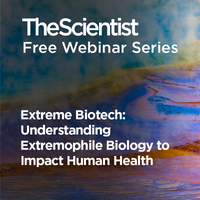Login
Subscribeinfectious disease, immunology, microbiology

How Chlamydia Guards Itself Against the Immune System
Natalia Mesa, PhD | Jan 2, 2023 | 4 min read
The bacterium produces a particular protein that allows it to sneak past the human immune system even while triggering inflammation.

Infographic: How Chlamydia Evades Immune Detection
Natalia Mesa, PhD | Jan 2, 2023 | 2 min read
Chlamydia trachomatis, the bacterium that causes chlamydia, hides from the immune system by cloaking itself in the host cell’s membrane then modifying the membrane’s protein composition.

New Strategies in the Battle Against Infectious Diseases
The Scientist Staff | 2 min read
Learn how the latest research into viral and bacterial pathogens advances the prevention and treatment of infectious diseases.

What Happens When You Catch More than One Virus?
Alejandra Manjarrez, PhD | Dec 7, 2022 | 8 min read
The “tripledemic” shines a spotlight on viral interference, in which one infection can block another.

Blood Thinner Ineffective for COVID-19 Patients: Study
Dan Robitzski | Nov 28, 2022 | 2 min read
A clinical trial finds that the anticoagulant apixaban, which has been prescribed to help COVID-19 patients recover, is ineffective and in rare instances dangerous.

The Scientist Speaks - To Conserve and Protect: The Quest for Universal Vaccines
Niki Spahich, PhD | 1 min read
Patrick Wilson discusses the challenges in designing universal vaccines and his work developing one for influenza.

Oxford-AstraZeneca Nasal COVID-19 Vaccine Falters in Clinical Trial
Dan Robitzski | Oct 11, 2022 | 2 min read
Researchers say they’re abandoning the project in its current form—one of several that aims to induce what’s known as mucosal immunity against SARS-CoV-2.

Vitamin D Likely Doesn’t Prevent COVID-19, Studies Find
Dan Robitzski | Sep 9, 2022 | 2 min read
The results from two large clinical trials don't support the idea that supplements of the vitamin bolster immune defenses against SARS-CoV-2.

The Genetics Behind Immune Response Variability
The Scientist | 1 min read
Researchers seek genomic clues to understand differences in the immune response to infection.

How COVID-19 Affects Pregnancy
Amanda Heidt | Aug 16, 2022 | 10 min read
Evidence thus far shows that pregnant people infected with SARS-CoV-2 are at higher risk for severe disease and death, as well as complications in their pregnancies.

Tweak to N Protein Makes Delta Variant More Infectious
Chloe Tenn | Nov 5, 2021 | 2 min read
Using a novel lab technique, researchers identified a mutation that allows the virus to insert more genetic material into host cells.

Understanding COVID’s Long Game
The Creative Services Team in collaboration with Cayman Chemical | 1 min read
Floyd Chilton and Thomas Bumol shine light on the pathways that SARS-CoV-2 hijacks to cause disease.

Moderna vs. Pfizer: Is There a “Best” mRNA Vaccine?
Alejandra Manjarrez, PhD | Sep 24, 2021 | 10 min read
Both of the mRNA vaccines available in the US are highly effective against severe COVID-19, but recent studies suggest that Moderna’s elicits a stronger immune response and might be better at preventing breakthrough infections.

SARS-CoV-2’s Wide-Ranging Effects on the Body
Diana Kwon | Sep 1, 2021 | 8 min read
Researchers’ painstaking examinations have begun to reveal how the virus wreaks havoc in multiple organs and tissues.

How Infectious Diseases Affect the Brain
The Scientist | 1 min read
From a loss of taste to dementia, infectious agents cause an array of neurological symptoms.

The Quest for a Universal Coronavirus Vaccine
Diana Kwon | Jun 29, 2021 | 8 min read
Scientists are on the hunt for a shot that will protect against not only SARS-CoV-2, but other members of its family that may emerge in the future.

Q&A: Human Challenge Studies of COVID-19 Underway in UK
Jef Akst | Jun 18, 2021 | 4 min read
Researchers at Imperial College London and the University of Oxford are exposing healthy volunteers to SARS-CoV-2 for science.

Extreme Biotech: Understanding Extremophile Biology to Impact Human Health
The Scientist | 1 min read
Jaclyn Winter and Shiladitya DasSarma will discuss how they harness the unique biology of extremophiles for the discovery and development of new therapeutics.

Most Kids with MIS-C Report Few or No COVID-19 Symptoms: Study
Kerry Grens | Apr 7, 2021 | 2 min read
A review of hundreds of cases finds that only a minority of patients noted being sick with a coronavirus infection prior to developing the severe inflammatory condition.
